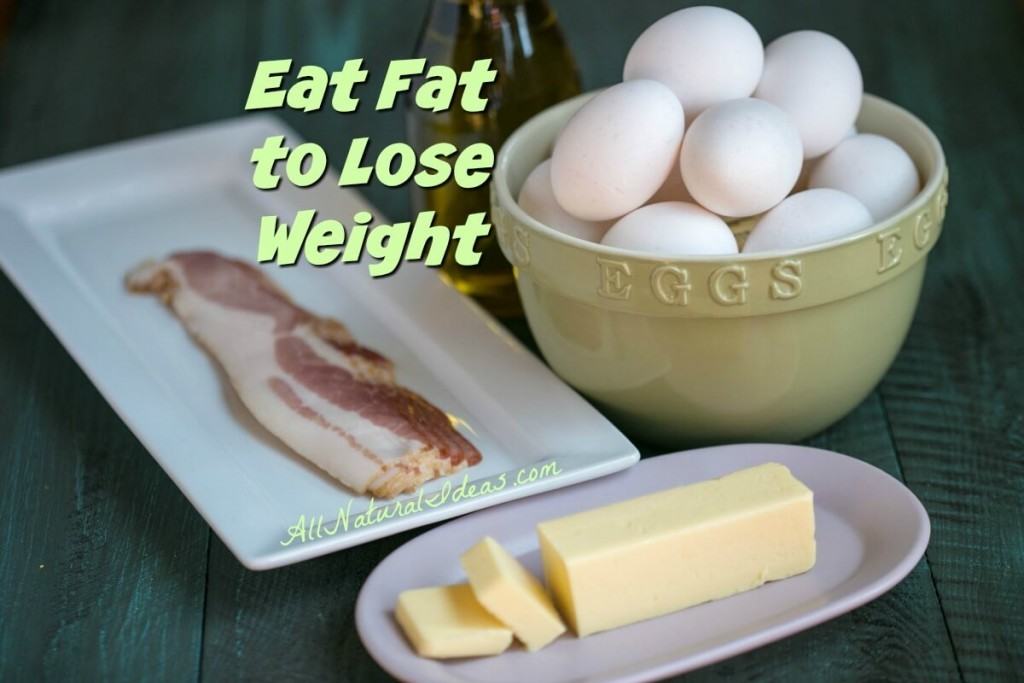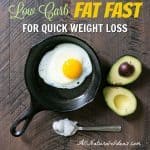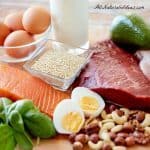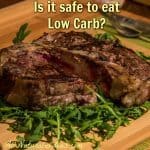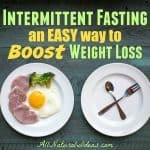Eat fat to lose weight fast? Sounds conflicting. But, when you increase fat and cut back starchy foods and sugars, most see quick weight loss.

Eat lots of fat for weight loss? Eat Fat to Lose Weight Fast. Though it might sound counterintuitive, consuming adequate dietary fats at every meal can in fact lead to weight loss.
But you have to sift through the morass of information, misinformation and conflicting studies to know if eating a higher fat diet, is indeed clinically proven to contribute to weight loss.
For example, one National Institutes of Health study concluded, cutting dietary fat reduces body fat more than cutting carbs. “Restricting dietary fat led to body fat loss at a rate of 68 percent higher than cutting the same number of carbohydrate calories when adults with obesity [consumed] strictly controlled diets,” the small-scale study, published in Cell Metabolism, concluded.
Yet if you dig a little deeper in the research, you’ll find that this government-funded study has shortcomings. There were only 19 subjects, all of whom had a pre-existing medical condition (obesity) and were only observed for less than a month.
Another small study (63 subjects), published in the New England Journal of Medicine also controlled two groups into a low-fat and low-carb diet. The findings counter the NIH study, concluding, the low-carb (higher dietary fat) group lost more weight, compared to the low-fat group.
Nearly every mainstream health organization (American Heart Association, Academy of Nutrition and Dietetics, American Diabetes Association, etc…) recommends limiting dietary fat (to no more than 30% of total caloric intake). These organizations also make saturated fat, in particular, public enemy #1.
So which is it … limit fat or limit carbs for weight loss?
Kris Gunnars of AuthorityNutrition.com analyzed 23 peer-reviewed, randomized, controlled studies, comparing low-carb to low-fat diets. The low-carb groups often lost 2-3 times as much weight as the low-fat groups.
As Gunnars points out in his analysis of the 23 different studies, perhaps the most notable conclusion was that the low fat groups had their caloric intake controlled in most of the studies; the low-carb (higher fat) control groups were not limited to a certain amount of calories. In other words, those on the low-carb/higher-fat diet could eat as much as they wanted.
Another important study marker compared visceral fat (read: “unhealthy abdominal belly fat”) in the low-fat and higher-fat groups. The lower carb/higher fat diets had less visceral fat.
Why don’t low fat diets help you lose weight then?
For those without a basic understanding of nutrition biochemistry, it makes sense … higher fat leads to more belly fat. However, it’s been shown time and time again that you need to eat fat to lose weight fast.
If only dietary fats were called by their more scientific name, “lipids,” then, perhaps, there wouldn’t be so much confusion, or fear of, consuming fats.
Here are some basic, physiological reasons why eating more natural dietary fats, including unoxidized (read: “spoiled”) saturated fats, leads to a more sustainable and effective weight loss than a low-fat diet:
When dietary fats are restricted, carbohydrates are the main macronutrient that fills the caloric void. A gram of fat contains more than double the energy as carbohydrates (9 calories per gram of fat, compared to 4 calories per gram of carbs.) It may seem that if you’re trying to lose weight, it would make sense to eat more carbs, because carbs only have 4 calories per gram, compared to 9 for fats.
Here’s why natural dietary fat is a better source of calories than most carbs (certainly more so than the very starchy variety of carbs such as mashed potatoes, or processed varieties, which is anything with white or heavily processed wheat flour)….
Natural fat makes you feel satisfied and keeps you feeling full, for longer. A meal without sufficient dietary natural fat will almost lead to cravings for snack foods within a couple hours after digestion.
Think of the food you eat as gasoline. If you eat quick-burning carbs (think: “white rice” and anything with white or refined wheat flour), your engine (your body) might be adequately powered for an hour or so, but the fuel burns too quickly. If you consume more dietary fats, the fuel mixture is longer lasting.
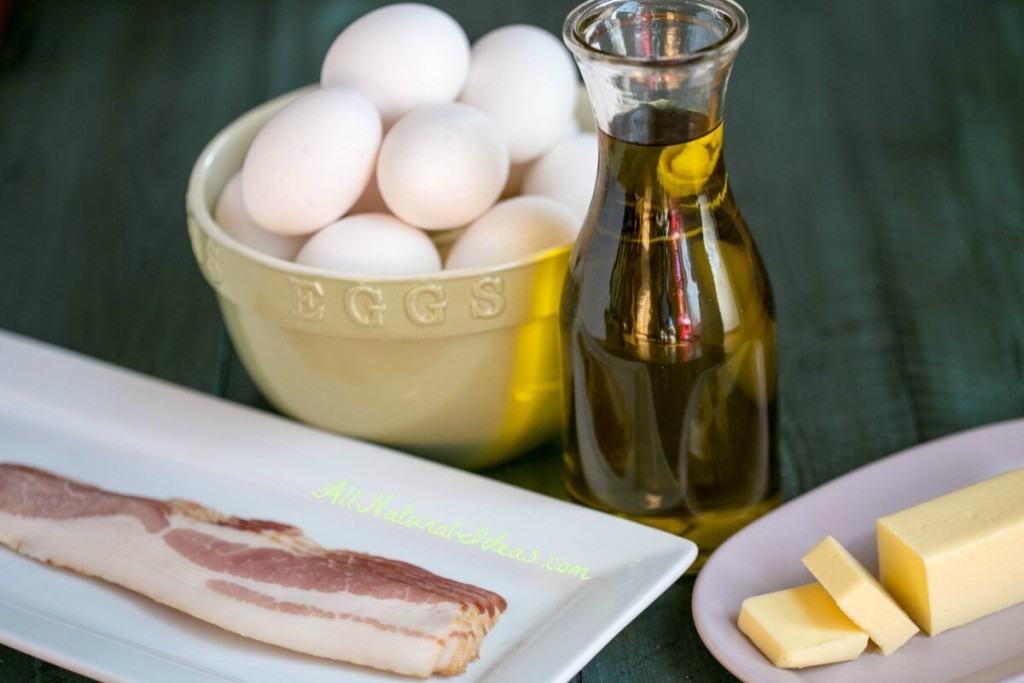
Which Diet is Better for Blood Sugar Levels?
Consuming a diet high in carbohydrates, especially refined carbohydrates, can dramatically increase blood sugar levels. A diet higher in natural fats, by contrast, is clearly better for blood sugar and insulin levels. Type 2 diabetes can even be greatly managed— or even reversed—by eating a diet low in, or better yet, free of, refined carbohydrates.
One study, published in Nutrition and Metabolism, concluded, “Lifestyle modification using low carbohydrate interventions is effective for improving and reversing type 2 diabetes.”
Avoid Saturated Fat Like the Plague?
For decades, saturated fat has been one of the leading scourges of the mainstream medical establishment, blamed as the prime culprit for cardiovascular disease (CVD) and coronary heart disease (CHD). It’s the reason many people to this day ditch egg yolks for egg whites and steak for wheat grass. Despite evidence to the contrary, mainstream medicine still blames heart disease and other chronic diseases on saturated fat.
Yet, more and more research is debunking saturated fat’s role in CHD and CVD. A meta-analysis of over 300,000 participants published in The American Journal of Clinical Nutrition concluded, “there is no significant evidence for concluding that dietary saturated fat is associated with an increased risk of CHD or CVD.”
Another study, led by researchers at Ohio State University, concluded that doubling, or even tripling the amount of dietary saturated fat, does not raise levels of saturated fat in the blood.
What research studies often fail to control for is the type of saturated fat used in the study. Just as eating organic, grass-fed beef in moderation can be part of a healthy diet, as opposed to eating factory-farmed beef, not all saturated fats are healthy. Taking grass-fed beef as an example, if you don’t overcook the beef, the saturated fat may offer health benefits; it it’s blackened or overcooked, the saturated fat becomes oxidized, which can in turn lead to a pro-inflammatory response in the body. Other examples of saturated fats becoming oxidized occur when a frying pan, say of egg yolks, exceeds smoking point, or if a fat has been exposed to the elements for too long (light, heat, or air).
Conclusion: Eat Fat to Lose Weight Fast
Eat fat to lose weight fast by eating more dietary natural fat sources that are naturally absent of sugar (sorry, that rules out ice cream). Severely limit processed and refined carbs in your diet. This includes anything with white and wheat flour. Try to make low-starch vegetables, and to a lesser extent, high-fiber grains (quinoa, farro, millet, barley, wild rice) your main source of carbs. Fruits are also carbs, and a handful of berries every day and one or two other whole pieces of low-fructose fruit (a green apple or a small slice of watermelon, for example) are also ok.
If you’re vulnerable to energy crashes and cravings, try upping your intake of natural dietary fats, including avocados, nuts, whole eggs, organic or raw dairy, free-range/organic meats and wild fish. Fruit oils such as olive oil, and tropical oils (coconut oil) are also excellent sources of natural dietary fat.
Bottom line: if a certain dietary fat has been in existence for thousands of years, it’s probably beneficial for health and for weight loss. A diet high in carbs will lead to greater inflammation, which will make it harder to lose weight. So, eat fat to lose weight fast!
